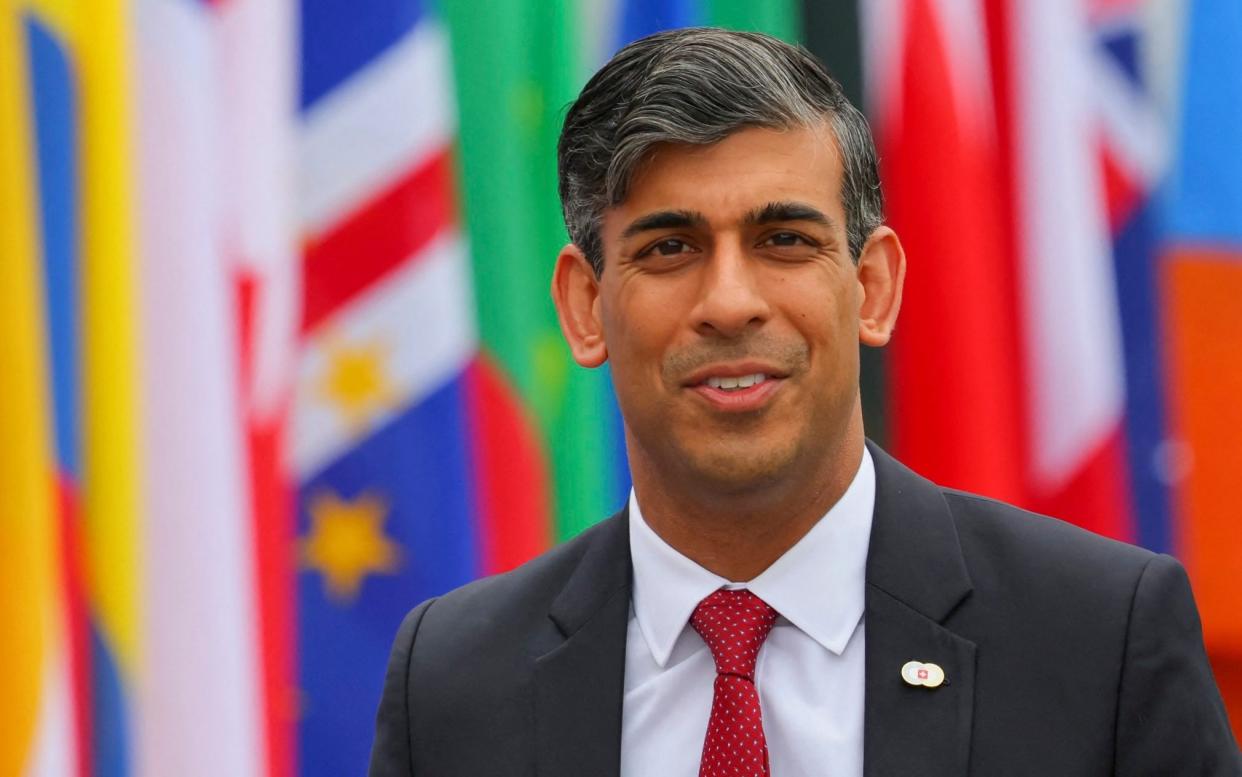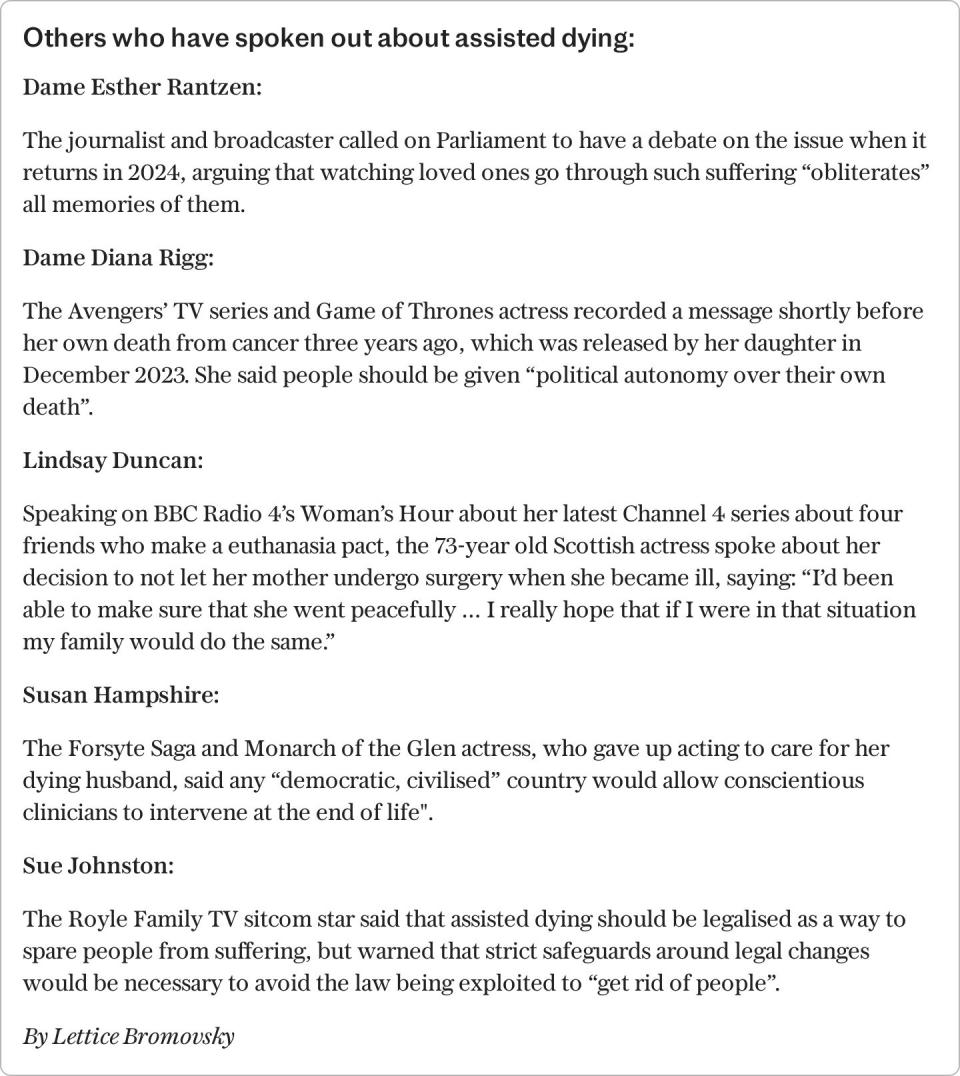I’m not opposed to assisted dying, says Sunak

Rishi Sunak has said he is not opposed to assisted dying as long as there are safeguards to protect the vulnerable.
The Prime Minister has already pledged to make parliamentary time for a free vote on changing the law to allow doctors to help people to die.
But he has now gone further, indicating he would personally back a change if there were measures in place to make sure no one was pressurised into killing themselves.
“I’m not against it in principle,” he said. “It’s just a question of having the safeguards in place.”
The intervention was welcomed on Sunday by Dame Esther Rantzen, the TV presenter who has joined Dignitas so she can end her life if she needs to.
Both Mr Sunak and the Labour leader Sir Keir Starmer have promised to make time available in the parliamentary schedule for a change in the law.
Sir Keir has gone further, saying the time has come for legislative reform. He voted for assisted dying in the Commons in 2015.
Until now, the Prime Minister has not made his personal position clear.
Speaking to reporters in Italy where he was attending the G7 summit, Mr Sunak said: “The manifesto has language on this which is very clear: we will support what Parliament does, these matters are always an issue of conscience, of course, if Parliament wants to decide they want to facilitate it.”
He went on: “I’m not opposed to it, in principle, and it’s a question of making sure the safeguards are in place and are effective. That’s always been the conversation and the debate in the past and that’s where people have had questions in the past.”
Dame Esther said: “What terrific news, in these polarised times, that the two leaders of the biggest parties both believe that the next Parliament must have the opportunity to debate this life-and-death issue.
“After all, Jersey and the Isle of Man have already decided to reform their own laws. It’s clear the majority of the voters throughout the UK believe the current cruel, messy criminal law must now be changed.
“And that change could make a real positive difference to people like me with terminal cancer, enabling us to face our own deaths with confidence.
“Many of us fear that the current criminal law, if left unchanged, will mean that those we love will be left with painful memories of us in agony, instead of the peaceful death we all hope for.
“I’m so glad that Sir Keir Starmer and Rishi Sunak have decided that the time has come to look at the abundant evidence from countries abroad, to consider which precautions should be included in a new assisted dying law here. I’m hoping this crucial debate will take place as soon as possible in the new Parliament.
“Surely it is time now for us to be allowed to choose whether our lives have become unbearable, after all, it’s our life, our death, and I believe it should be our choice.”

Sarah Wootton, chief executive of Dignity in Dying, said: “It’s clear that assisted dying is high on the political agenda and this debate is on the table no matter who leads our next government.
“It is hugely significant that both the Prime Minister and the Leader of the Opposition have promised they would make time for a proper debate and vote on assisted dying, and that neither are opposed to reform.
“This is a watershed general election for dying people, many of whom will be casting their final vote and will give it to candidates who are on the side of compassionate choice... Assisted dying is a movement whose time has come.”
But Dr Gordon Macdonald, chief executive of Care Not Killing, said: “The Prime Minister’s position on assisted suicide and euthanasia hasn’t changed and these new comments do not reflect a change in his stance.
“What they do show is he recognises the difficulty in drafting robust legislation on this issue, because of what we see in the handful of jurisdictions that have introduced state-assisted killing.
“Safeguards quickly removed and pressure put on disabled people, those with chronic conditions and mental-health problems to be included.
“Furthermore, any change in the law would represent a dramatic change in how doctors and nurses treat and care for people. It would also place huge pressure, real or perceived on terminally ill and disabled people to end their lives exactly as we see in the handful of places that have legalised assisted suicide or euthanasia.”


 Yahoo News
Yahoo News 
